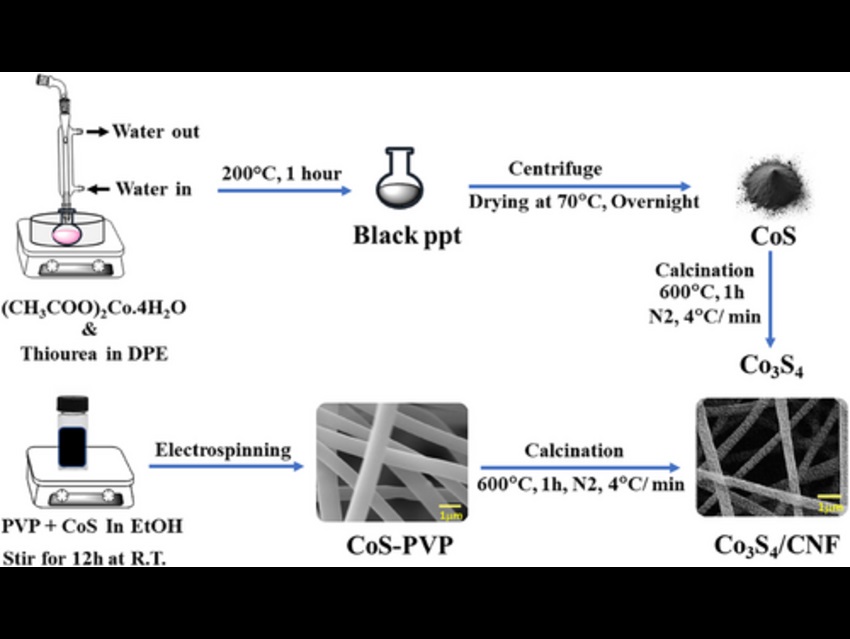Supercapacitors are promising energy storage devices, but their energy density is still too low for many practical applications. This study aims to improve this by enhancing the material’s ability to store and transport protons, key to better performance. The research was conducted by a team of scientists, including Pravin Popinand Ingol, Department of Chemistry, Indian Institute of Technology Delhi, New Delhi, India, and colleagues, working on advanced energy materials and electrochemistry.
The study introduces sulfur vacancy-enriched cobalt sulfide-carbon nanofiber composites. These vacancies create more active sites for proton storage, significantly boosting the performance of supercapacitors. This approach is innovative because it combines defect engineering with nanostructuring to optimize energy storage.
The team synthesized a composite material by first using electrospinning to produce mesoporous carbon nanofibers from cobalt sulfide, carbon nanofibers, and sulfur powder. They then introduced sulfur vacancies through heat treatment in a reducing atmosphere of hydrogen and nitrogen gas at 400–600°C. This process selectively removes sulfur atoms, forming vacancies that act as active sites for proton storage. Electrochemical tests, including cyclic voltammetry and charge–discharge cycles, showed that the composite exhibited improved conductivity, increased active sites, high specific capacitance, excellent rate capability, and enhanced ion transport. Notably, the material retained over 88% of its capacitance after 10,000 cycles, demonstrating excellent long-term stability.
This work shows that defect engineering, specifically sulfur vacancies, can open the door to designing other vacancy-rich materials for energy storage. Future research may explore scaling up the synthesis and integrating these materials into commercial devices.
- Sulfur Vacancy-Enrichment Boosts the Proton Storage Sites in Mesoporous Cobalt Sulfide-Carbon Nanofiber Composites for High-Performance Supercapacitor Devices
Sagar Munjal, Vaishali Tanwar, Ajay, Pravin Popinand Ingole
Adv. Sustain. Syst. 2025
https://doi.org/10.1002/adsu.202500464




